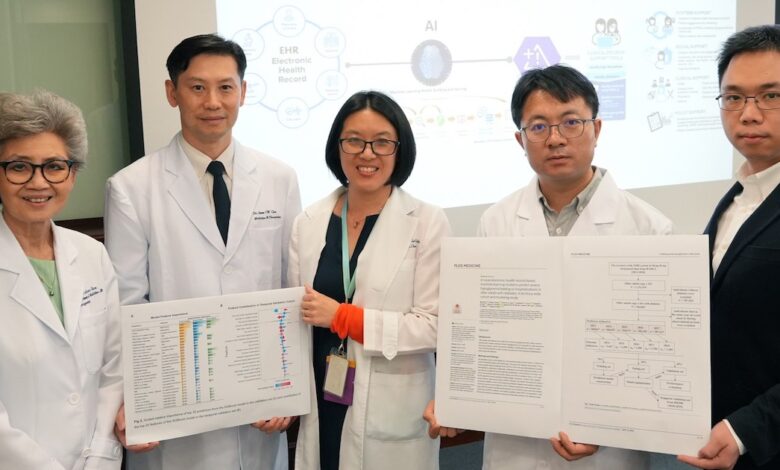Hong Kong Big Data is used to build predictive AI and many other AI compendiums


CU Medicine develops AI to predict severe hypoglycemia
Researchers from the Faculty of Medicine at the Chinese University of Hong Kong (CU Medicine) used anonymized big data from the Hospital Authority’s Data Collaboration Laboratory to develop a new machine learning model can predict the risk of severe hypoglycemia in older adults with diabetes.
They analyzed about 1.5 million records of more than 360,000 elderly people with diabetes from 2013-2018. Based on the XGBoost machine learning algorithm, the risk prediction model uses 258 predictors, including demographics, hospitalization rates, and diagnoses, to predict severe hypoglycemia events requiring hospitalization in the next 12 months.
In addition to prolonged hospital stays, severe hypoglycemia occurs is also associated with an increased risk of falls, cardiovascular disease, dementia and all-cause mortality, CU Medicine notes.
Achieving an 85% positive predictive value in one study, this model can be integrated into an EHR decision support system for preemptive interventions, such as adjusting the timing and dose of insulin injections or changing to antidiabetic drugs with lower blood sugar-lowering ability.
Indian Army seeks to develop AI to support diagnosis
The Indian Armed Forces Health Service has partnered with the Indian Institute of Technology in Kanpur, Uttar Pradesh to jointly research and develop technological solutions to address the health problems of deployed soldiers in difficult terrain.
According to the MoU, IIT Kanpur will also help the Armed Forces Center for Computational Medicine under the Armed Forces Medical College in creating diagnostic AI models.
Alodokter joins Indonesia’s digital health mission
Digital health company Alodokter is partnering with the Indonesian government in expanding access to health services nationwide through telemedicine.
The Ministry has signed a memorandum of understanding with the Ministry of Health to cooperate in areas such as capacity building for medical staff through the provision of specialized credit units; health communication and education; conduct health development surveys; and provide telemedicine services.
Mahidol University tests Japan’s endoscopic AI
Mahidol University in Thailand is collaborating with Japanese startup AI Medical Service (AIM) to evaluate the company’s applicability of endoscopic AI in the Thai environment.
This comes as AIM looks to expand its market presence globally after receiving regulatory approvals in Japan and Singapore over the past four months.
Indonesian University tests Korean medical AI on lung disease and stroke diagnosis
Gadjah Mada University Academic Hospital in Indonesia will also conduct clinical trials of three diagnostic support AI from Korean medical AI company, Deepnoid.
According to their memorandum of understanding, the hospital will test Deepnoid’s diagnostic support software for various lung diseases, lung nodules and brain aneurysms for 18 months. This comes as the hospital, which has seen the number of X-ray, MRI and CT scan results double in the past three years, is preparing for increased demand for imaging while only having 22 readers for now.
The results of this clinical trial will inform Deepnoid’s application for a regulatory license in Indonesia, the company shared.




